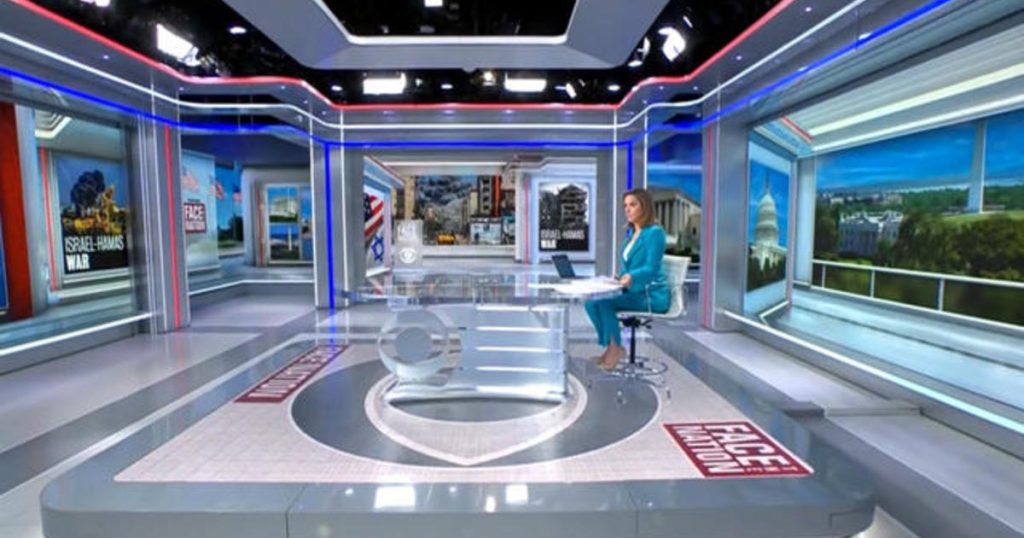Republican Senator Tom Cotton of Arkansas appeared on “Face the Nation” to discuss the ongoing conflict between Israel and Hamas, stating that this situation is different from actions taken by President Ronald Reagan in the 1980s. He emphasized that Israel is fighting a war of survival against a terrorist group that committed one of the worst atrocities against Jews since World War II. On the other hand, Democratic Senator Chris Van Hollen of Maryland criticized the Biden administration for setting a “very low bar for what’s acceptable” from Israel regarding its use of U.S. weapons in the conflict.
A 44-year-old Palestinian woman named Zahra Skaik, who lives in Gaza City, shared her story on the show. She escaped the war thanks to her sons – one of whom is serving as an infantryman in the U.S. army. Margaret Brennan interviewed Skaik, who described how she left Gaza with nothing but a small backpack and the same clothes she had been wearing since the war began. This personal account shed light on the human impact of the conflict and the challenges faced by civilians in war-torn regions.
The conversation on the show highlighted contrasting views on the Israel-Hamas conflict, with politicians from different parties offering their perspectives. Senator Cotton defended Israel’s actions as necessary for self-defense, while Senator Van Hollen criticized the Biden administration for not holding Israel to a higher standard in its use of U.S. weapons. These differing opinions reflect the complexities of international conflicts and the challenges in finding a resolution that satisfies all parties involved.
The interview with Zahra Skaik brought a human element to the discussion, showcasing the individual experiences of those affected by the conflict. Skaik’s story of leaving Gaza with her sons, including one serving in the U.S. army, underscored the personal sacrifices and hardships faced by civilians caught in the crossfire. By sharing her story, Skaik added a personal dimension to the broader geopolitical issues at play in the Israel-Hamas conflict.
Overall, the segment on “Face the Nation” provided a platform for diverse perspectives on the Israel-Hamas conflict, including insights from political leaders and firsthand accounts from individuals affected by the war. The discussion showcased the complexities and nuances of international conflicts, highlighting the differing viewpoints on how best to address such situations. By addressing both political analysis and personal narratives, the show offered a comprehensive view of the ongoing conflict and its impact on individuals and communities in the region.
As the Israel-Hamas conflict continues to unfold, media coverage and public discourse play a crucial role in shaping perceptions and influencing policy decisions. Programs like “Face the Nation” provide a platform for discussing complex international issues and promoting diverse viewpoints. By featuring interviews with political leaders, experts, and individuals directly impacted by the conflict, the show helps viewers gain a deeper understanding of the human, political, and strategic dimensions of the ongoing crisis in the Middle East.


